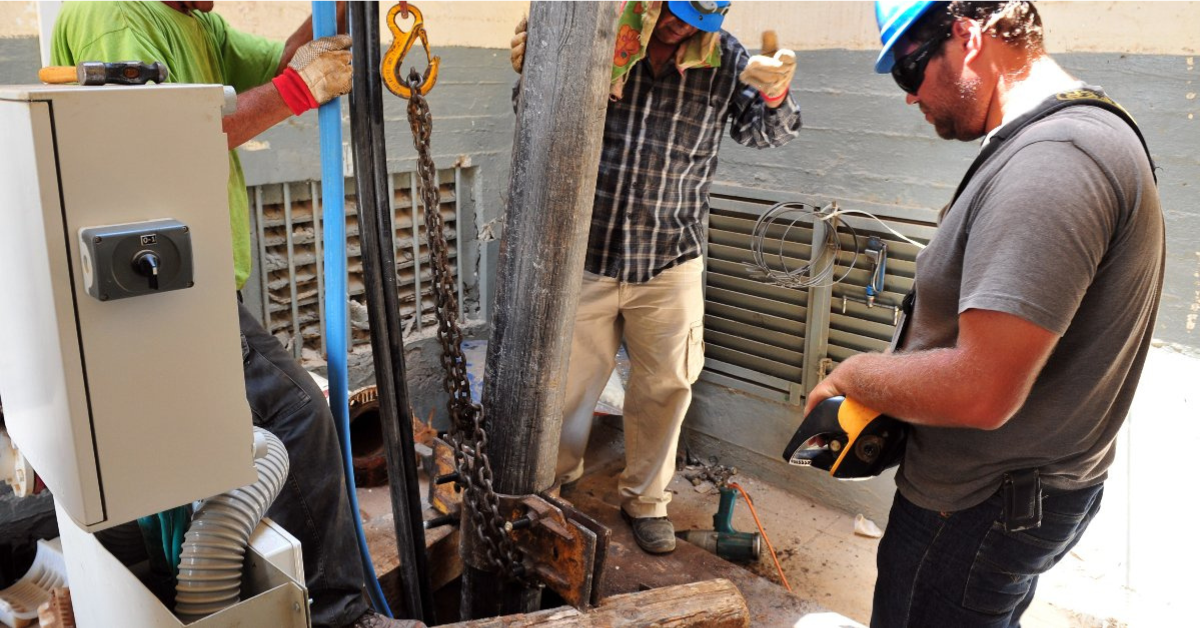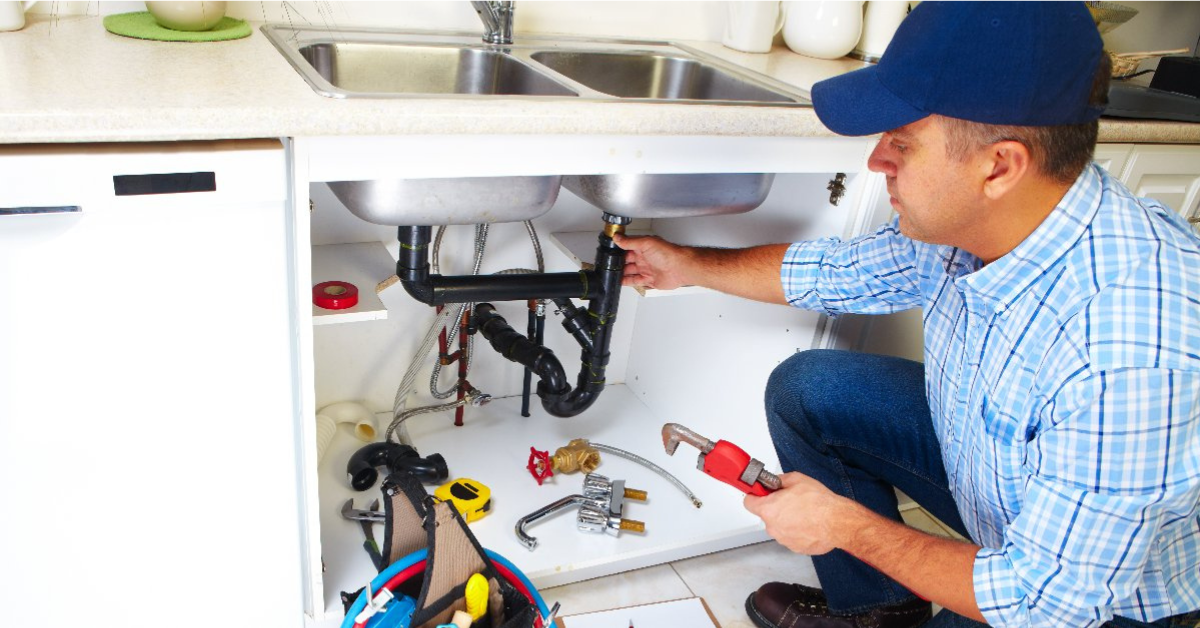Is public utilities a good career path? Public utilities are crucial to modern society and help us daily.
Many people consider utility services essential… The faucet turns off, and the water is poured. We have electricity in our house and office to charge our lights, appliances, and electronics. The cars are driven by road.
These things do not require much thought as they are commonplace, but they are impossible without public utilities. In some ways, public utilities have provided modern infrastructures such as electricity, sewer lines, highways, and bridges.
Public utilities have been a stable and rewarding career path for decades. However, some may find balancing family and work obligations challenging with the requirement of being on call 24/7.
This article will explore all the advantages and disadvantages of pursuing a public utilities career while answering the main question Is public utilities a good career path?
Yes, a career path in public utilities can be financially lucrative and provide job security, above-average income, benefits, and job opportunities for advancement.
Consider a career in public utilities if you’re young and ambitious and looking for a job that pays more than the median wage while offering extra benefits like health insurance and other perks.
If you know what you’re doing, the public utilities industry can give you the job satisfaction and security you want.
What makes public utilities a good career path?
Public utilities are a stable and rewarding career path because they offer several advantages, including the following:
- Public utilities are crucial to modern society and play an important role in our everyday lives.
- The job security and benefits offered by public utilities are unparalleled.
- Public utilities provide opportunities for advancement and job satisfaction.
- A career in public utilities can be financially lucrative, with above-average incomes.
We will go more in-depth on this topic later in this article.
What are public utilities?
To understand why the answer is yes to “Is public utilities a good career path?”. We need to explain what they are.
Public utilities are services that provide crucial resources to society, such as water, electricity, and roadways. They are a stable and rewarding career path because they offer some advantages, including job stability, benefits, and opportunities for advancement.
Public utilities’ obligations
Public utilities are those companies that provide vital services to the public, such as water, electricity, gas, and sewage.
Government agencies regulate these companies, and they must adhere to certain obligations.
First and foremost, public utilities must provide reliable service. This means that service should be uninterrupted, and customers should be able to rely on the quality of the service.
Additionally, public utilities must work to keep their prices reasonable.
This ensures that customers can afford to use the services and that the company is not unduly profiting from its monopoly on vital services. Finally, public utilities must be responsive to customer needs and concerns.
This means they should have a mechanism for addressing customer complaints and be willing to make changes when necessary. By meeting these obligations, public utilities can ensure that they provide the best possible service to their customers.
Public utility characteristics
Public utilities are services that are provided by the government to the public. These services can include water, electricity, gas, and sewer.
One of the main characteristics of public utilities is that they are essential for the health and safety of the public.
For example, water is necessary for drinking, cooking, and cleaning. Electricity is necessary for lighting, heating, and cooling. Gas is necessary for cooking and heating.
Sewer is necessary for waste disposal. Another characteristic of public utilities is that they are regulated by the government.
The government sets standards for how these services must be provided. For example, the government may set standards for the quality of water that must be provided by a water utility.
The government may also set rates that a utility can charge for its services. Finally, public utilities are usually monopoly businesses.
This means that only one company provides each service in a given area. For example, most areas have only one water or electric utility.
This can allow these companies to charge high prices and provide poor service because they do not have to compete with other companies.
Is public utilities a good career path? Reasons to choose a career in public utilities

There are many reasons to choose a career in utilities. For one, it can be a stable and secure profession.
Utility firms are typically large and well-established, meaning there is usually little risk of layoffs or other job instability.
Furthermore, utility firms often offer competitive salaries and benefits packages. In addition, careers in utilities can be both challenging and rewarding.
Utility workers play an essential role in keeping our communities running smoothly, and they often have the opportunity to use their skills and knowledge to solve complex problems.
If you are looking for a stable and secure profession that offers competitive pay and benefits, then a career in utilities may be the right choice.
Public utilities career pros and cons
A career in utilities can be both challenging and rewarding. On the one hand, you can directly impact the lives of people in your community by providing them with essential services like water, electricity, and gas.
On the other hand, you also need to be able to deal with the challenges that come with working in a regulated public sector.
One of the biggest pros of a career in utilities is job stability. Utilities are vital services, so there will always be a need for qualified workers.
In addition, many utilities offer good benefits and pensions, making it a great option for those looking for career stability. However, there are also some downsides to working in utilities.
One of the biggest is the possibility of long hours and shift work. Because utilities must be available 24/7, workers often have to work nights, weekends, and holidays. In addition, pay rates in utilities can be lower than in other industries.
Overall, a career in utilities can be both rewarding and challenging. When deciding the answer to Is public utilities a good career path? It’s important to weigh the pros and cons before making a decision about whether it’s right for you.

Is public utilities a good career path? Pros of a public utilities career path
Job security
Public utilities offer a stable and rewarding career path, with good job security and prospects for advancement. The industry is also expected to grow significantly in the next decade, providing even more employment opportunities for those looking to enter the field.
Competitive salaries and benefits
Public utilities careers offer various benefits and perks, including competitive salaries, health insurance, and retirement plans. And finally, utilities are a critical sector of the economy, and those working in the field play a vital role in keeping society running smoothly.
A career in public utilities can be both challenging and rewarding. Professionals in this field help to ensure that our water supply is clean and safe, our streets are well-lit, and our buildings are up to code.
In short, they play a vital role in keeping our communities running smoothly. While the work can be demanding, it is gratifying to know that you play a crucial part in keeping your community safe and healthy.
These jobs in the public utility sector offers the chance to work with various people, including those struggling to make ends meet and those passionate about making a difference in their community. It is also incredibly rewarding to see the positive impact of utilities on people’s lives.
In addition, a career in utilities offers the opportunity to learn new skills and knowledge and grow and develop in your role.
If you are looking for a challenge and want to make a difference in your community, a career in utilities may be the perfect fit.
Learning new technologies
The industry is rapidly evolving, with new technologies and services emerging.
This means that professionals in the public utilities field can stay ahead of the curve and learn new skillsets, which can be invaluable in today’s economy.
Cons of a public utilities career path
While there are many advantages to pursuing a career in utilities, there are also some disadvantages.
Long hours and shift work
One of the biggest challenges is the long hours and shift work that are often required. Utility workers must be on call 24 hours a day, 365 days a year, making it difficult to maintain a healthy work-life balance.
In addition, because of the nature of the work, utility workers often have to work overtime or be on call for emergency situations. This can lead to fatigue and stress, impacting physical and mental health.
As a result, potential workers should weigh the pros and cons carefully before deciding whether to pursue a career in this field.
Lower pay rates than other industries
When comparing public or private utilities, one of the biggest drawbacks is that public utilities consistently pay rates tend to be lower than private utility firms.
This is because public utilities are typically government-owned and operated, and government salaries tend to be lower than the private sector workers when compared to the public sector.
In addition, utilities are often not as profitable as other businesses, so they have less money to offer employees regarding wages and benefits.
As a result, if you’re looking for a high-paying career, utilities may not be the best option. However, if you’re willing to sacrifice some financial security for a chance to make a difference in your community, a career in utilities can be a great choice.
Keeping up with technology
The industry is rapidly evolving, with new technologies and services always emerging. This means that field professionals must stay ahead of the curve and continually learn new skillsets.
Growing competition for jobs
The public utility industry is expected to grow significantly in the next decade, which could mean more job competition.
Public utilities subject to market fluctuations
While utilities offer a wide range of benefits and perks, the industry is still subject to market fluctuations. This means that workers in the field may experience periods of unemployment or underemployment.
All things considered, a career in utilities can be a rewarding and challenging experience. Take your time and carefully consider the pros and cons before deciding, but utilities may be a perfect choice if you’re looking for an exciting and constantly-changing field.
What are the benefits of a career in public utilities?
- Sense of stability and security – A career in utilities can offer various benefits. First and foremost, it can provide a sense of stability and security. Utilities are essential to our infrastructure and will not likely disappear anytime soon. This means that those who work in this field can often count on long-term employment.
- Lucrative career – Careers in utilities can be quite lucrative. Workers are often well-paid and may also be eligible for generous benefits packages.
- Satisfaction -Finally, a career in utilities can offer great satisfaction. Knowing that you are helping to keep the lights on and the water flowing can be a great source of pride.
What are the responsibilities of a public utility career?
A career in utilities can be both rewarding and challenging. As a public servant, you would ensure that the community can access vital services like water, electricity, and sewerage.
You would also need to respond to emergencies and power outages and work with other agencies to ensure continuity of service.
In addition to these operational responsibilities, you must manage budgets and personnel and comply with safety regulations. As a result, a career in utilities requires diverse skills and knowledge.
However, the rewards of this type of work can be great, as you would be helping to keep the community running smoothly.
The duties of public utility managers
Public utility managers are responsible for ensuring that the public can access safe and reliable utilities, such as water, electricity, and gas.
They oversee the construction and maintenance of utility infrastructure and communication systems, as well as the operation of utility facilities. In addition, public utility managers develop and implement policies and procedures to ensure compliance with regulatory standards.
They also coordinate emergency response efforts with other government officials during natural disasters or other emergencies. Public utility managers play an essential role in safeguarding the public’s health and safety.
Importance of the public utility sector

The public utility sector comprises several industries crucial to modern society’s functioning. These include electricity, gas, water, sewage treatment and agricultural industries. The importance of these industries cannot be overstated.
Without reliable access to utilities like electricity and water, everyday life would be impossible.
In addition, the public utility sector plays an important role in the economy. For example, constructing new power plants and water treatment facilities creates jobs and drives economic growth. In times of crisis, the public utility sector is also often called upon to provide vital services.
For example, during natural disasters like hurricanes and floods, utilities are often responsible for restoring power and water service to affected areas. As such, the public utility sector is a vital part of our everyday lives and our economy.
What do people working in public utilities do? – Roles of public utility worker
Public utility workers working in utilities provide an essential service to their communities. They work to ensure that homes and businesses have access to clean water, safe electricity, and reliable transportation.
Public utility workers are often the first responders in natural disasters or other emergencies. They work long hours in often difficult conditions to restore power, repair water lines, and clear road debris. Public utility workers play a vital role in keeping their communities running smoothly, and they deserve our admiration and support.
What kinds of work are available in the public utility sector?
There are various types of work available in the public utility sector. One of the most common jobs is working as a customer service representative, helping customers with billing inquiries and service requests.
Other positions include meter readers, who collect data on electricity and water usage, and line workers, who maintain and repair power lines and water pipes. There are also many managerial and administrative positions available in the public utility sector, overseeing the work of other employees.
In addition, research and development positions are available for those interested in developing new technologies for the public utility industry. Whatever your skills and interests, there is likely a position available in the public utility sector that matches you.
Public Utilities Sector’s Areas or Categories
- Electricity – Imagine you don’t have a web connection. And, if you don’t have power, then you will have to go on living in a dark era. Electricity is increasingly necessary, and working in the electrical sector is very important. Moreover, you may work with another utility segment to keep the electricity running efficiently, to keep it running. The increasing interest in power generation as a replacement for coal means you can do a range of work in these fields.
- Sewage Removal – A surprisingly dirty option for the public service sector is wastewater removal. The people in this field are accountable for what happens to our sewage treatment plants or our sewer systems. Daily activities include collecting and treating the waste to ensure it is not contaminated with pollutants.

- Natural Gas – Many homes have gas heat, but many don’t realize what takes place to achieve it. Natural gas is extracted from the underground deposits and pumped into pipelines. It then undergoes the process with the local company that prepares it and dispenses it on its doorstep. Natural gas can be used for distribution, pipeline work, or local governments.
- Water – Another aspect to be considered for utilities should also be access to drinking water at home. During employment at Water Supply, it is necessary to ensure clean water is supplied to diverse residential units without any obstacles.

How many jobs are available in the public utilities industry?
The utility industry include businesses that generate, transmit, and distribute electricity, natural gas, water, and sewage. While the industry has seen some consolidation in recent years, it still consists of thousands of companies of all sizes. According to the latest data from the Bureau of Labor Statistics, there are over 500,000 open positions in the public utilities industry.
This figure includes both full-time and part-time positions, as well as temporary and seasonal jobs. The vast majority of these openings are for entry level jobs, such as line workers and customer service representatives.
However, there are also many openings for higher-level positions, such as engineers and managers. With so many opportunities available, now is a great time to consider a career in the utilities industry.
Types of jobs/career opportunities in the public utility industry
The public utility firms offer various career opportunities, from working with electricity and natural gas to providing water and wastewater services.
Utility firms are responsible for ensuring that these vital services are delivered safely and reliably, and they employ a wide range of professionals to help them meet this challenge.
Electrical engineers design and oversee the construction of power plants and transmission lines, while water engineers develop systems for delivering clean water to homes and businesses.
Operations managers coordinate the activities of crews who maintain and repair equipment, while customer service representatives handle inquiries from the public. In short, the public utility sector offers career opportunities for those with the right skills and interests.
Here is a list of types of jobs/career opportunities in the industry:
- Meter Readers / Utility Markers – This job requires work on the farm and independently, which can be very rewarding for the introvert. Meter readers will take measurements of homes and businesses to estimate how much utility the place uses. Utility marks will be visible on the floor to identify the possible subsurface lines needed for construction projects.
- Wind Turbine Technician – Our most prestigious career choices are as turbine technicians in the utility sector. Electric-powered industries are expected to expand by 68% by 2030. The median wages are 55.5k, so there are good living opportunities. Some of the technicians earn more than $ 100K annually. You need to be risky since this job may take you to scary heights. This job is for those workers with fearlessness!

- Administration – If you enjoy working with organizations and wish to support workers who help our society make its best, joining an administration team could be an awesome fit for your career. You might also perform tasks such as bookkeeping and scheduling, and you will be required to file and submit documents. This role is essential to smooth operation and supports the top management team.
- Utility Manager – Getting into utility management can be an excellent opportunity to develop a better job. A utility manager is a person directing employees and budgeting and monitoring the health and wellness of different utilities, including power plants. Skilled managers need to be found for most major utilities, making a good career in a highly competitive field.
- Electricians – Electricians are required for many jobs, and utilities do not. The installation of the electric appliances is checked using the tests instruments for proper working, and the property condition is checked. You are responsible for identifying any electrical and electronics repairers needed and assisting with the issue.
- Skilled Trade Careers – These careers require no higher level of study and may require training or specialized training. Some are considered to belong in the manufacturing sector, which is exciting for those who enjoy building and creating.
- Customer Service – When people like you, customer support can help make people feel comfortable. You’ll spend hours helping customers resolve their utility problems. Scheduling appointments is important to you.
- Plumber / Steamfitter – Plumbers and steamfitters can choose from many different choices for their jobs. Using steam or water is probably the best option, but it is also feasible in other industries.

- Auditing/Accounting – Financially advanced needs may also require an auditor or accountant to perform the calculations to check profit or to ensure the customers’ billing is accurate.
- Other Utility Careers – you have plenty of options, including support jobs, marketing careers, and finance.
Best government positions in the public utility sector
The public utilities sector is an important part of the government, providing essential services to the public such as water, electricity, and gas. There are a variety of positions within the sector, each with its own set of responsibilities. Some of the most important positions in the utilities sector include:
- The Director of Public Works – is responsible for overseeing the construction and maintenance of public infrastructure, including roads, bridges, and water treatment plants.
- The Commissioner of Public Utilities – is responsible for regulating the prices and quality of public utility services of utilities such as electricity and water.
- The head of the Department of Water Resources – is responsible for managing the state’s water resources, including rivers, lakes, and reservoirs.
Each of these positions plays a vital role in ensuring that the public can access safe and affordable utilities. As such, they are some of the most important positions in the government.
What are the salary ranges for a career in public utilities?
The average annual salary for utilities in the United States is $75,969 as of July 24, 2022.
If you need a quick pay estimator, that comes to about $36.52 per hour. This is the same as $1,461 each week or $6,331 per month.
The bulk of Utilities salaries now varies between $41,000 (25th percentile) and $100,000 (75th percentile), with top earners (90th percentile) getting $130,000 annually across the United States, while ZipRecruiter is reporting yearly wages as high as $151,500 and as low as $19,500.
There may be numerous prospects for progression and greater compensation depending on skill level, region, and years of experience, given that an engineer’s average salaries range ranges substantially (by as much as $59,000).
High-paying jobs in the Public Utilities Sector
Many people think of the public utilities sector as boring, low-paying jobs. However, there are several high-paying jobs in this sector. For example, power plant operators, solar panel installers, and wind turbine technicians can earn six-figure salaries.
In addition, many utility companies offer generous benefits packages, including health insurance and retirement plans. So, the utility sector is worth considering if you’re looking for a high-paying job with good benefits.
Here is some example for high paying jobs in the public utilities sector:
- Engineers and Engineering technicians ($46K-$184K / yr – glassdoor) – They represent professional workers who provide the utilities with the assurance that industrial machinery mechanics and equipment will work perfectly. They install maintenance and repair machinery and other industrial equipment, including conveying equipment, production machinery, and packing machines. Dismantle, repair, reassemble or transport machinery.

- Power plant operators, distributors, and dispatchers ($48K-$110K / yr – BLS) – The production and operating workers of power plants control the production and distribution of electric power. The company is also responsible for maintaining electric power equipment for the production of electricity, such as boilers, turbine generators, and other equipment.
- Water and liquid waste treatment plant operators ($29K-$79K / yr – recruiter) – Operators in filtration and treatment plants manage machines, run machinery, control operations, and monitor plants whose water is treated to make it drinkable. People working at sewage treatment plants are responsible for removing pollutants from homes.
- Meter Readers or Utility Markers ($29K-$76K / yr – BLS) – Meter readers, commonly termed utility markings, play an important role as utilities monitor the meter readings of residential and office buildings and monitor the meters for the proper monitoring or control of the use of energy by the customers.
- Electrical and electronic installers and repairers ($38K-$102K / yr – BLS) – The primary job of electrical installers is installing and repairing electrical equipment within the industry. Electricians earn an average annual salary of $61,760 a year.
- Line installer technicians ($37K-$109K / yr – college-grad) – Line installer technicians, also called line workers, install and repair electrical power systems, telecommunication cables, and fiber optics cables.
- Network and computer system administrators ($50K-$132K / yr – BLS) – Stations have computer networks on their power stations, and the systems administrator must maintain the system’s daily operation.
- Computer and Information Systems Managers ($96K-$209K / yr – BLS) – Computer and IT systems managers or IT Project managers manage computer-related activities within public-use industries.
- Office and administrative support ($28K-$65K / yr – glassdoor) – Administrative and bookkeeping functions assist upper management with the bookkeeping schedule and paperwork.
- Construction workers ($39K-$44K / yr – Salary.com) – Construction workers work on construction sites, including building pipes and carrying other equipment.
- Water Treatment Plant Operator ($31K-$78K / yr – careerexplorer.com) – Water treatment plants operate strictly to ensure safe water consumption.
Public utility employment
The utility industry has undergone significant change in recent years, with new technologies and regulations transforming how utilities operate.
As a result, utility jobs are becoming increasingly technical, and many workers now need specialized training to succeed in their careers. Despite these changes, the utilities industry remains an important source of good-paying jobs for millions of Americans.
The utility industry continues to grow in the US, with a 0.51% average growth over the five years between 2017 and 2022.
This industry now employs 675,776 people in the US, with an average of 18.8 employees per business. The revenue per employee has also increased in the last five years, indicating a healthy and growing industry.
As of the fourth quarter of 2020, there were 172,232 utility employees. Nuclear energy employed nearly 25% of these workers, while 24.5 percent worked with advanced natural gas. Solar energy employs 2%. (Statista)
Public utility occupations
The utilities industry comprises various occupations, from power plant operators to water treatment plant workers. Many of these occupations are highly skilled and require specialized training, while others are more entry level jobs in nature.
However, all utility workers play an important role in ensuring that our homes and businesses have reliable access to essential services such as electricity, gas, and water.
The occupations with the highest employment levels in 2021 were electrical power-line installers, control and valve installers, and electrical engineers. These occupations are expected to experience explosive growth in the coming years.
First-line supervisors of mechanics had the fourth highest employment level in 2021, and meter readers and utilities had the fifth highest.
What are the job prospects for a career in public utilities?
A career in utilities can offer a stable and secure job with good benefits. The industry is responsible for providing essential services such as water, gas, and electricity, and it is typically less affected by economic downturns than other sectors.
In addition, many public utility companies are expanding their operations to meet the growing demand for these services.
As a result, there are good prospects for new graduates and experienced workers in this field. Furthermore, most companies offer competitive salaries and generous benefits packages.
5 Best public utilities companies to work for
- Excelon Corporation – Excelon Corporation is one of the best public utilities companies to work for because it offers good benefits and pays competitive salaries. The company is always looking for new employees and is strongly committed to providing quality services to its customers.
- Duke Energy Inc. – Duke Energy Corporation is American electric power and natural gas holding company headquartered in Charlotte, North Carolina, in the electric power sector. They are one of the best places to work for moms because of the paid leave policies and job security.
- American Water Works Company Inc. – American Water is an American public utility company that, through its subsidiaries, provides water and wastewater services in the United States. It offers water and wastewater services to approximately 1,700 communities in 14 states serving approximately 3.4 million active customers. Being a part of this huge family is one of the most rewarding jobs you could think of, mostly because of the community and purpose of this company.
- Nextera Energy Inc. – NextEra Energy, Inc. is an American energy company with about 58 GW of generating capacity (24 GW of fossil fuel sources), over $18 billion in 2020, and about 14,900 employees throughout the US and Canada. It is the largest electric utility holding company by market capitalization. Its subsidiaries include Florida Power & Light (FPL), NextEra Energy Resources (NEER), NextEra Energy Partners, Gulf Power Company, and NextEra Energy Services. Employees are saying in 2022 that it is a good overall company. Both a competitive wage and excellent benefits. Lack of flexibility in terms of work schedule and lack of work-life balance. The culture is fine.
- DTE Energy – Having 5001 to 10,000 people, DTE Energy is a utilities firm with its headquarters in the Detroit, Michigan, region. Working for DTE Energy is great. They support diversity, take care of their employees with wellness initiatives, and workers report feeling a sense of belonging.
Public utilities sector training and advancement
The public utilities sector offers a wealth of opportunities for training and advancement. Utilities are responsible for providing essential services to the public, and as such, they require a highly skilled workforce. To meet this demand, utilities offer a variety of training and development programs for their employees.
These programs can range from on-the-job training to formal education and certification courses. Moreover, utilities often offer tuition reimbursement and other financial incentives to encourage employees to further their education.
As a result, the public utilities sector is an excellent place for those looking to develop their skills and knowledge. With the right training, employees in the public utilities sector can advance their careers and grow into leadership positions.
Education and certification requirements for a career in public utilities
A career in public utilities can be a satisfying and well-paying choice, but it is important to be aware of the education and certification requirements before making the commitment.
Most states require a high school diploma or GED for entry-level positions. However, many public utilities jobs will also require a postsecondary educational level on top of the high school diploma, and some may require professional certification.
The type of education and certification required will depend on the job, but many public utilities workers complete training programs at community colleges or trade schools.
Some jobs may also require passing an exam by a state or federal agency. With the right education and training, This is a career that can be both rewarding and secure.
What Does Certified Utility Safety Professional (CUSP) Mean?
One of the most important certifications you should aim to get in your career path is a certified utility safety professional (CUSP).
A front-line safety leader who has completed the CUSP certification program is known as a CUSP. Examples of such front-line safety leaders include supervisors, foremen, and operations managers (CUSP).
The Utility Safety and Ops Leadership Network runs the CUSP program (USOLN). There are two certification levels offered by the CUSP program. CUSP Blue is made for operational leaders, whereas CUSP Green is made for people who work solely in safety and training.
The CUSP program grants utility safety professionals recognition across the industry. This certification gives companies the peace of mind that an individual has a wide range of knowledge, skills, and abilities in the utilities work environment.
A common standard for comprehension of utility safety standards is established via the CUSP test. A two-day utility safety leadership review helps candidates get ready for the test.
How to get started in a career in public utilities?
A career in public utilities can be a great way to make a difference in your community. Whether you’re interested in working with water, electricity, or gas, there are various ways to get started in this field. One option is to pursue a degree in engineering or another relevant field.

However, many entry-level positions do not require a four-year degree. Many utilities companies offer paid internships and apprenticeships that can give you the skills and experience you need to launch a successful career.
Whichever path you choose, a career in utilities can be both rewarding and challenging. You can make a lasting contribution to your community with the right training and commitment.
Is public utilities a good career path for you?
A career in public utilities can be very rewarding. It offers the opportunity to work in various settings, from small towns to large cities.
A great deal of job satisfaction comes from knowing that you are helping to provide essential services to the community. However, a career in utilities is not right for everyone. It can be very demanding, both mentally and physically.
It is also important to work well under pressure and handle stress effectively. If you are interested in a career in utilities, it is important to do your research and ensure that it is the right fit for you.
Public utilities facts
Here are some public utilities facts that clarify why the answer to “is public utilities a good career path” is yes.
- The industry is vital to the economy, providing essential services to consumers and businesses. (Elgaronline)
- The industry is rapidly evolving, with new technologies and services emerging. (Accenture)
- There are many career paths within public utilities, offering a range of professional opportunities. (Johns Hopkins)
- The industry is expected to grow significantly in the next decade, providing even more opportunities for those looking to join the field. (Accenture)
- Public utilities offer a stable and rewarding career path, with good job security and prospects for advancement. (U.S. News & World Report)
- The industry offers various benefits and perks, including competitive salaries, insurance, and retirement plans. (USA Today)
- Public utilities are a critical sector of the economy, and those working in the field have a vital role in keeping society running smoothly. (International Labour Organization)
Question: Is utilities a good career?
Answer: It can be, but it depends on your specific situation.
Utilities can be a good career if you’re interested in working in a stable industry with growth opportunities. However, it’s important to remember that the job market for utilities is competitive, so you’ll need the right skills and qualifications to stand out from the crowd.
Another thing to consider is that the work can be demanding, especially if you’re working in a field like power generation or transmission. So if you’re looking for a more relaxed career, utilities may not be the right choice.
Question: Is energy a good career path?
Answer: There is no simple answer to whether or not energy is a good career path. There are many factors to consider, including your skills, interests, and goals.
The energy industry is vast and complex, with many different sub-industries and sectors. If you have specific skills or experience in a particular area of energy, that can certainly be leveraged into a successful career.
For example, engineers may work in renewable energy, designing and developing new technologies. Business professionals may find careers in finance or project management in the oil and gas industry. Scientists might work for environmental organizations monitoring climate change data.
The options are nearly endless, but it’s important to research to determine where your skills and interests would be best suited. Once you’ve narrowed down your options, you can start to look for specific jobs in the energy industry that fit your criteria.
Question: What is utilities occupation?
Answer: A utility occupation is an employment in which workers protect the public and assist individuals during emergencies or disasters. This can include police officers, firefighters, paramedics, and first responders.
Question: Is electricity a career?
Answer: It can be. There are several different types of careers in the electric industry. Some people work as linemen who maintain and repair electrical power lines. Others work as electricians who install and repair electrical wiring in buildings. There are also jobs in engineering and management positions.
Electricity is an important part of our lives, and it’s fascinating to see how it works behind the scenes. If you’re interested in a career in electricity, opportunities exist. Do your research and find the best fit for you!
Question: Why choose a career in public utilities?
Answer: There are many reasons to choose a career in public utilities. For one, it is a stable and secure industry. Utility companies are typically large and well-established, so you can be confident that you will have a job even during tough economic times.
Utility companies also offer good benefits, including health insurance and retirement plans. And because work is essential to daily life, there is always a high demand for utility services. Even an entry-level job can lead to exciting and rewarding careers.
So if you are looking for a stable, secure, and Rewarding career, public utilities are a great option to consider!
Question: What training is required for a career in public utilities?
Answer: A career in public utilities typically requires a degree in engineering or a related field. However, some companies may also consider candidates with relevant experience and/or training in the electrical or mechanical trades.
Working for a public utility company usually involves working with and maintaining various electrical and mechanical equipment. So, strong electrical wiring and plumbing skills, for example, can be very beneficial. In addition, many companies also require their employees to complete safety training courses and pass certification exams.
Question: Is basic industries a good career path?
Answer: Basic industries can be a good career path depending on your interests, skills, and goals. It offers stability, a competitive salary, and the opportunity to work in a variety of industries. It can also provide you with the opportunity to develop your skills and progress in your career.
Conclusion: Is public utilities a good career path?
Is public utilities a good career path? The utility industry is a great choice for those looking for a stable and rewarding career.
With good job security, prospects for advancement, and a wide range of benefits and perks, professionals in the field can enjoy a comfortable lifestyle while making a valuable contribution to society.
While some disadvantages to consider, such as the need to constantly learn new skills and the possibility of long hours, these are outweighed by the many advantages the industry offers.
So if you’re looking for a wonderfully challenging and rewarding career, public utility jobs may be a perfect choice.
I hope you found this information helpful. Good luck in your career search!